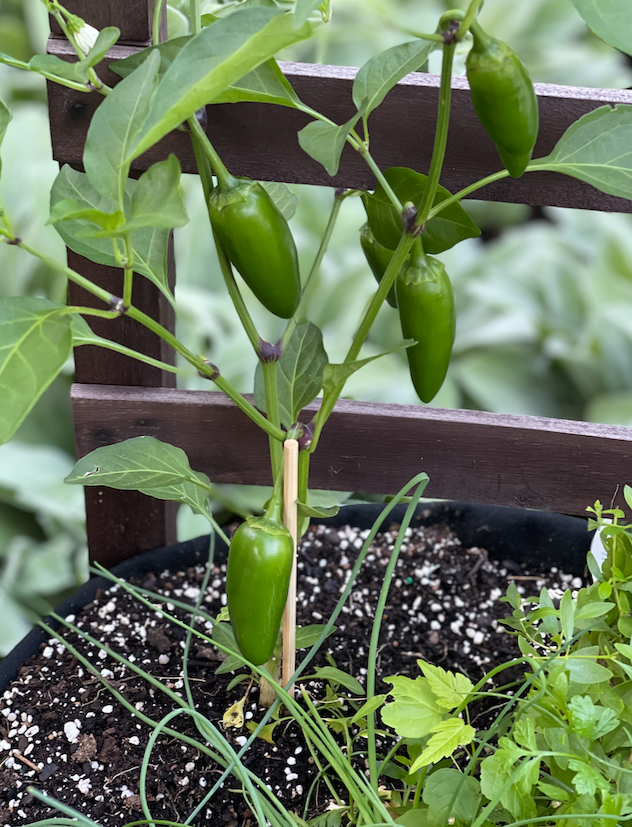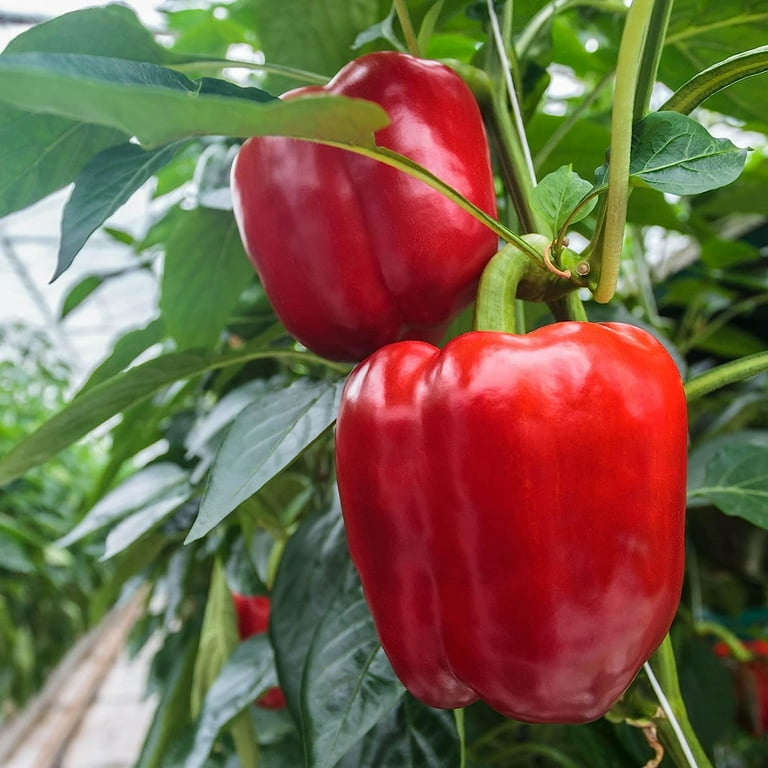Reveal the Best Fertilizers for Peppers: Essential Nutrients for Thriving Plants
Reveal the Best Fertilizers for Peppers: Essential Nutrients for Thriving Plants
Blog Article
Organic Vs. Synthetic Fertilizers: Which Is Best for Supporting Healthy And Balanced Pepper Plants?
In the world of nurturing healthy pepper plants, the choice between synthetic and organic plant foods stands as a crucial choice with significant implications. While both alternatives purpose to supply vital nutrients to support plant development, the subtleties of their influence on the soil, plant wellness, and the atmosphere spark a debate that mirrors throughout the horticulture neighborhood. Comprehending the distinct benefits and potential mistakes of each plant food type is vital for pepper cultivators looking for to enhance their yields while keeping a sustainable and eco-conscious technique.
Benefits of Organic Plant Foods
Organic fertilizers use a sustainable and environmentally-friendly strategy to beneficial pepper plants, providing essential nutrients without using synthetic chemicals. These all-natural plant foods are stemmed from natural resources such as compost, manure, bone meal, and seaweed, advertising dirt health and wellness and biodiversity. Unlike artificial fertilizers, organic alternatives release nutrients slowly, guaranteeing a balanced and steady supply for pepper plants to grow.
One substantial advantage of organic fertilizers is their ability to boost soil structure and water retention. By improving soil health and wellness, organic fertilizers advertise useful microbial activity, which helps in nutrient uptake by pepper plants. Additionally, natural fertilizers lower the danger of chemical run-off, protecting water resources from pollution and safeguarding the setting.
Moreover, organic plant foods add to long-term soil fertility by advertising the development of valuable soil microorganisms. These microorganisms assist break down raw material, releasing nutrients in a type that is conveniently available to pepper plants. best fertilizers for peppers. By cultivating a healthy soil ecological community, natural fertilizers support lasting pepper farming methods that profit both plants and the setting
Drawbacks of Synthetic Fertilizers
Synthetic plant foods, in contrast to their organic counterparts, position numerous disadvantages when made use of to nourish pepper plants, affecting both plant wellness and ecological sustainability. One major downside of synthetic fertilizers is their propensity to leach nutrients from the dirt swiftly.
Additionally, the overuse of synthetic plant foods can add to water pollution. Excess plant foods not taken in by plants can remove into water bodies, resulting in eutrophication, where algae blooms diminish oxygen degrees in the water, hurting aquatic life. In addition, artificial fertilizers are generally stemmed from non-renewable sources, such as nonrenewable fuel sources, adding to carbon emissions and environmental degradation throughout their manufacturing.
Nutrient Absorption Comparison
Reliable nutrient absorption plays a crucial function in the overall wellness and development of pepper plants. When contrasting artificial and organic fertilizers in regards to nutrient absorption, organic fertilizers have the benefit of providing a much more well balanced and slow-release source of nutrients (best fertilizers for peppers). Organic fertilizers contain a range of macro and micronutrients that are not only beneficial for the plants however additionally promote healthy and balanced soil microbial task, which assists in nutrient uptake. On the other hand, synthetic plant foods frequently offer a fast release of nutrients, which can bring about seeping and runoff, causing lower nutrient absorption rates by the plants.
Additionally, natural plant foods enhance dirt framework and water retention capacity, enabling pepper plants to accessibility nutrients much more successfully. This better soil high quality promotes root development, making it possible for better nutrient absorption. Artificial fertilizers, although initially increasing plant development as a result of their high nutrient focus, might hinder long-lasting nutrient absorption by degrading dirt wellness with time.
Ecological Impact Considerations

On the other hand, synthetic plant foods, although commonly more concentrated and immediately available to plants, can have damaging impacts on the environment if not applied properly (best fertilizers for peppers). Their production needs high energy inputs, bring about greenhouse gas exhausts and adding to climate modification. Furthermore, the runoff of excess artificial fertilizers can pollute water sources, leading to eutrophication and hurting water environments.
Ideal Fertilizer Practices for Peppers
When fertilizing pepper plants, optimizing nutrient uptake and reducing ecological effect are vital factors to consider. To achieve this, it is important to follow ideal fertilizer practices customized to the specific requirements of pepper plants. One crucial method is to perform a soil test prior to applying any plant foods. This examination can establish the pH level of the soil and determine any kind of nutrient shortages, directing you in picking the most appropriate plant food formulation.
One more crucial technique is to fertilize pepper plants at the appropriate time. Commonly, peppers gain from receiving fertilizer at growing and after that once more when they begin to flower. Over-fertilizing can result in nutrient imbalances and damage the Full Article plants, so it is essential to comply with suggested application rates.
In addition, picking a balanced plant food with an NPK ratio that suits pepper plants' needs is essential. Organic fertilizers, such as garden compost or manure, can be exceptional choices as they launch nutrients gradually and improve soil framework in time. Nevertheless, artificial fertilizers can provide a fast nutrient boost when required. Eventually, combining artificial and organic fertilizers carefully can assist support healthy and balanced pepper plants while lessening environmental influence.
Conclusion

Organic fertilizers provide a lasting and environmentally-friendly approach to nourishing pepper plants, supplying crucial nutrients without the usage of artificial chemicals. Unlike synthetic plant foods, organic choices launch nutrients gradually, guaranteeing a balanced and consistent supply for pepper plants to grow.
Synthetic fertilizers, in contrast to their natural click over here equivalents, pose various drawbacks when used to nourish pepper plants, affecting both plant health and wellness and environmental sustainability. When contrasting organic and synthetic plant foods in terms of nutrient absorption, natural fertilizers have the advantage of providing an extra balanced and slow-release useful site source of nutrients.In addition, organic fertilizers enhance soil structure and water retention capacity, allowing pepper plants to gain access to nutrients much more effectively.
Report this page